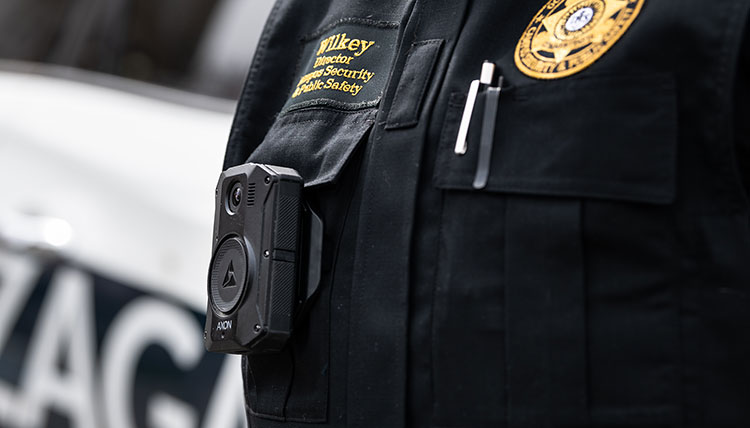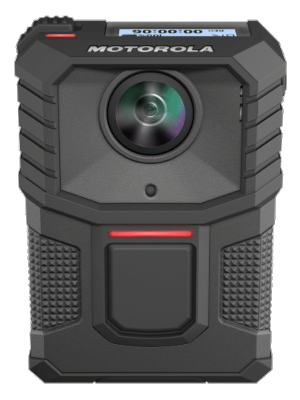Gonzaga’s Campus Security and Public Safety (CSPS) officers are committed to the wellbeing of the community, working to implement the very best public safety practices to ensure a peaceful, safe, and secure campus environment that is accessible and inviting to students, faculty, staff, and guests.
In the latest step to incorporate industry best practices, CSPS will launch a one-year body-worn camera pilot program on August 23, 2022, commensurate with the beginning of Gonzaga’s Fall semester.

Security industry research shows that body-worn cameras strengthen law enforcement transparency, accountability, report accuracy, and training. The use of body-worn cameras has become increasingly common at universities, including other Jesuit colleges and universities across the country. In addition, officers with both the Spokane Police Department and Spokane County Sheriff’s Department wear body-worn cameras while on duty.
Camera video and audio will be stored in a secure, encrypted system. Review of interactions and incidents, when necessary, is undertaken by Gonzaga’s Human Resources Department, Office of General Counsel, and the Resolution Center for Student Conduct and Conflict. Video and audio are used by officers to ensure accuracy of reports and are reviewed by CSPS for quality and training. Special protocol is followed for private settings, such as residence halls, locker rooms, and restrooms.
It is our desire that body-worn cameras will have a positive impact on all CSPS operations and provide a clear and objective record of officer-community interactions. You can send CSPS any feedback or questions via the Send a Message button toward the bottom of this page.
Frequently Asked Questions
Gonzaga University’s Campus Security & Public Safety officers will be testing body-worn cameras manufactured by Motorola. They are small, black devices clipped to the uniform, usually worn at the chest. The cameras have a 130-degree field of view, digital (AAC) audio and video recorder.
All Campus Security officers and investigators will wear the cameras.
Cameras will be activated immediately, or as soon as it is safe and reasonable to do so, when responding to any call for service or officer-initiated call.
The cameras are visible on the officer. When the camera is activated, a red light will appear on the front of the camera. If there’s doubt about whether the camera is on, community members are encouraged to ask the officer if the camera is activated.
Privacy will be respected. In places where there is an expectation of privacy, such as restrooms and locker rooms, officers will allow community members an opportunity to be sufficiently clothed prior to them entering the location with an activated body-worn camera on their uniform.
The footage will be stored in encrypted files in a secure location. Routine video will be stored for 120 days. Any video used for evidentiary purposes will be kept indefinitely.
Officers may consult footage when writing their reports to verify accuracy. Supervisors, including the Director and Associate Director of Campus Security & Public Safety, will review all footage pertaining to use of force and related to complaints lodged by a Gonzaga community member, CSPS staff or member of the public. Footage of routine calls for service for each officer will be reviewed by CSPS supervisors four times each month for audit purposes.
Yes, there will be a process by which students or other community members may be allowed to review footage under certain circumstances. The footage will not be released publicly or to the media.

